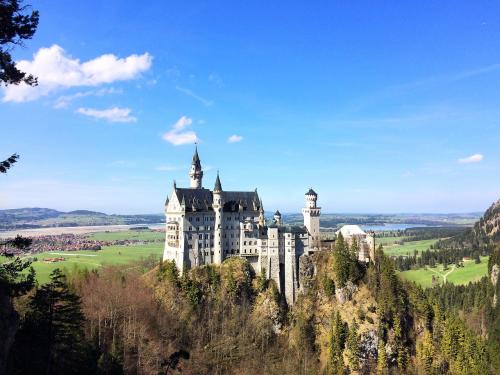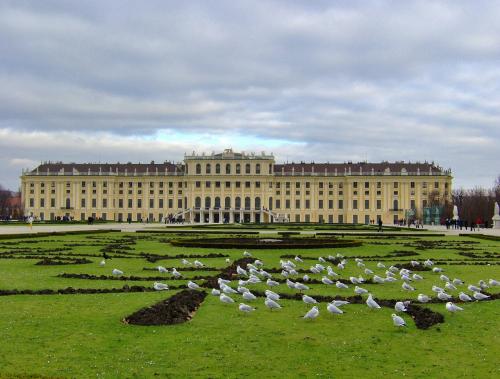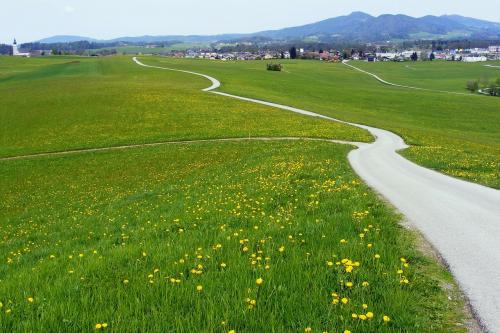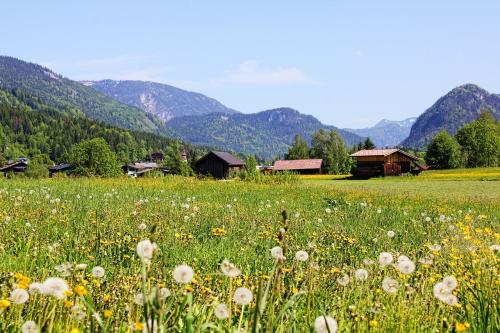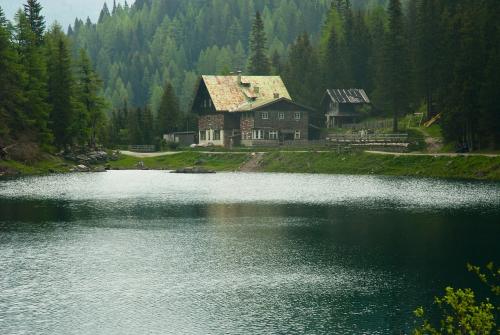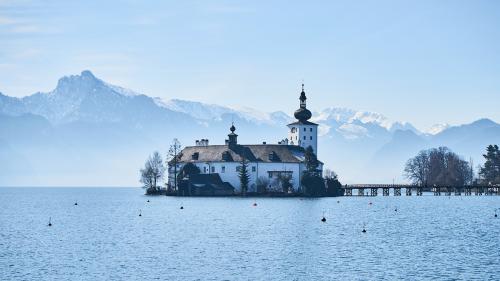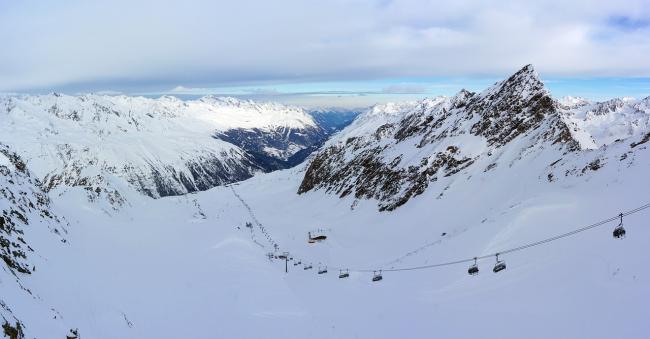Seasons in Austria
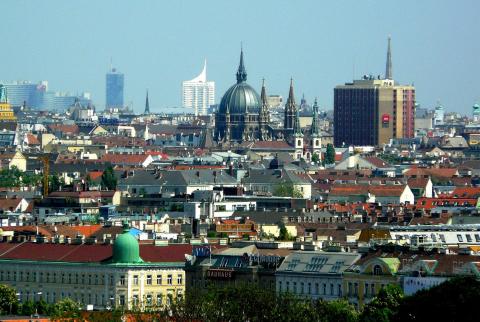
Austria’s weather conditions are determined by the influence of a temperate climate in southern part of country with transition to continental at the Alpine foothills. Summer is mostly warm, sometimes even hot and rainy and winter is cold and snowy.
Bigger part of country is located in mountainous terrain so latitudinal climatic zonation is well observed. The higher the altitude, the lower average temperatures are. The greatest amount of precipitation falls in the Alpine region and in intermountain plains there are slightly smaller amount of falls. East is the driest part of Austria.
Seasons
Contents:
Spring in Austria
Spring comes to Austria with beginning of March. Temperature rises above zero which means ending of ski season. All mountainous ski resorts are in the zone of risk at this time of year because of probability of avalanches. Skiing season is replaced by tourist time. Rising of temperature with decrease of falls and extension of light day create great conditions for sightseen and other ways of spending. Yet nights are still pretty cold, from April they become warmer.
Spring in Austria is the time for numerous religious celebrations which are started with Easter. Catholicism is very common in the country and its residents diligently observe all the traditions prescribed by canon. Austrians also celebrate Labour Day at first of May. This is the national holiday with the day off for most workers.
Climate of the Spring Months
| March Max average t°: +8 °C (46.4 °F) Min average t°: +1 °C (33.8 °F) Sundial in the day: 4 hours Rainy days: 8 days Precipitation: 45 mm (1.8") |
| April Max average t°: +14 °C (57,2 °F) Min average t°: +6 °C (42.8 °F) Sundial in the day: 6 hours Rainy days: 8 days Precipitation: 45 mm (1.8") |
| May Max average t°: +19 °C (66.2 °F) Min average t°: +10 °C (50 °F) Sundial in the day: 8 hours Rainy days: 9 days Precipitation: 70 mm (2.7") |
(Vienna)
Spring Holidays
26th-28th March: Easter.
1st May: Labour Day.
5th May: Ascension Day.
16th May: Whit Monday.
26th May: Corpus Christi.
Summer in Austria
Summer in Austria is mild. Average temperatures don’t rise above 25 °C (77 °F). This is the wettest time since a decent amount of precipitation. Summer - a time for sudden showers, which, one way or another, have a refreshing effect so guests of country definitely won’t suffer from heat.
But in the foothill valleys and mountains you can even freeze. Average temperatures in those regions are between 12 °C (54 °F) and 16 °C (61 °F). So everyone, who intended to visit Alpine valleys should have autumn jacket. There lots of local festivities in Austria during summer. People make big puppets of medieval soldiers and organize parades to commemorate historical military successes.
Climate of the Summer Months
| June Max average t°: +23 °C (73.4 °F) Min average t°: +14 °C (57.2 °F) Sundial in the day: 8 hours Rainy days: 9 days Precipitation: 65 mm (2.5") |
| July Max average t°: +25 °C (77 °F) Min average t°: +15 °C (59 °F) Sundial in the day: 9 hours Rainy days: 9 days Precipitation: 84 mm (3.3") |
| August Max average t°: +24 °C (75.2 °F) Min average t°: +15 °C (59 °F) Sundial in the day: 8 hours Rainy days: 9 days Precipitation: 70 mm (2.7") |
(Vienna)
Summer Holidays
21st June: Day of Bonfires.
25th July: St. Jacob′s Day.
15th August: Assumption of the Virgin Mary.
Autumn in Austria
Autumn in Austria begins relatively rosy. September despite the fact that evening starts a few hours earlier, often spoiling pleasant sunshine. And temperature stays pretty high in range between 19 °C (66 °F) and 21 °C (70 °F). Rains in this period are rare so many consider this time as best for cultural tourism.
Real autumn begins in October. Nature fade, finally bestowing multicolored swirl of red, crimson, yellow, gold colors. Distinctive features of November are freezing temperatures at night and the almost complete absence of the sun. At the last month of autumn it rains everywhere. By the end of the season most ski resorts are open.
Climate of the Autumn Months
| September Max average t°: +20 °C (68 °F) Min average t°: +11 °C (51.8 °F) Sundial in the day: 7 hours Rainy days: 7 days Precipitation: 40 mm (1.5") |
| October Max average t°: +14 °C (57.2 °F) Min average t°: +7 °C (44.6 °F) Sundial in the day: 4 hours Rainy days: 8 days Precipitation: 55 mm (2.2") |
| November Max average t°: +7 °C (44.6 °F) Min average t°: +3 °C (37.4 °F) Sundial in the day: 2 hours Rainy days: 8 days Precipitation: 55 mm (2.2") |
(Vienna)
Autumn Holidays
26th October: Austrian National Day.
31st October: All Saints' Day.
1st November is: All Soul′s Night.
11th November: St. Martin′s Day.
Winter in Austria
In late December, almost the entire territory of the country is covered by permanent snow cover. But winter in Austria is quite soft with periodic rains in the valleys. Temperature does not drop far below zero. January is the coldest month in its average temperatures are in range between -5 °C (27 °F) and +3 °C (37 °F). Same time temperature on ski resorts almost never drops below -10 °C (14 °F).
February is warmer but freezing winds conceal warming. Avalanches are the main dangers of the winter season so don’t engage in independent action, going to the mountains on unbeaten roads. Remember that safe winter vacation is possible only in the ski resorts, where state of weather is watched by professionals.
Climate of the Winter Months
| December Max average t°: +3 °C (37.4 °F) Min average t°: -1 °C (30.2 °F) Sundial in the day: 2 hours Rainy days: 8 days Precipitation: 45 mm (1.8") |
| January Max average t°: +1 °C (33.8 °F) Min average t°: -4 °C (24.8 °F) Sundial in the day: 2 hours Rainy days: 8 days Precipitation: 40 mm (1.6") |
| February Max average t°: +3 °C (37.4 °F) Min average t°: -2 °C (28.4 °F) Sundial in the day: 3 hours Rainy days: 7 days Precipitation: 45 mm (1.8") |
(Vienna)
Winter Holidays
4th December: St. Barbara′s Day.
5th December: Krampustag.
6th December is St. Nicholas′ Day.
8th December: Feast of the Immaculate Conception.
25th December: Christmas Day.
26th December: St. Stephen's Day.
1st January: New Year's Day.
6th January: Epiphany
 Seasons of the Year
Seasons of the Year 